It is not firedfrom the knee.
One of my men tried this andbroke his leg.
Model 89
The Japanese had identified an important gap in the range of hand grenades and mortars.
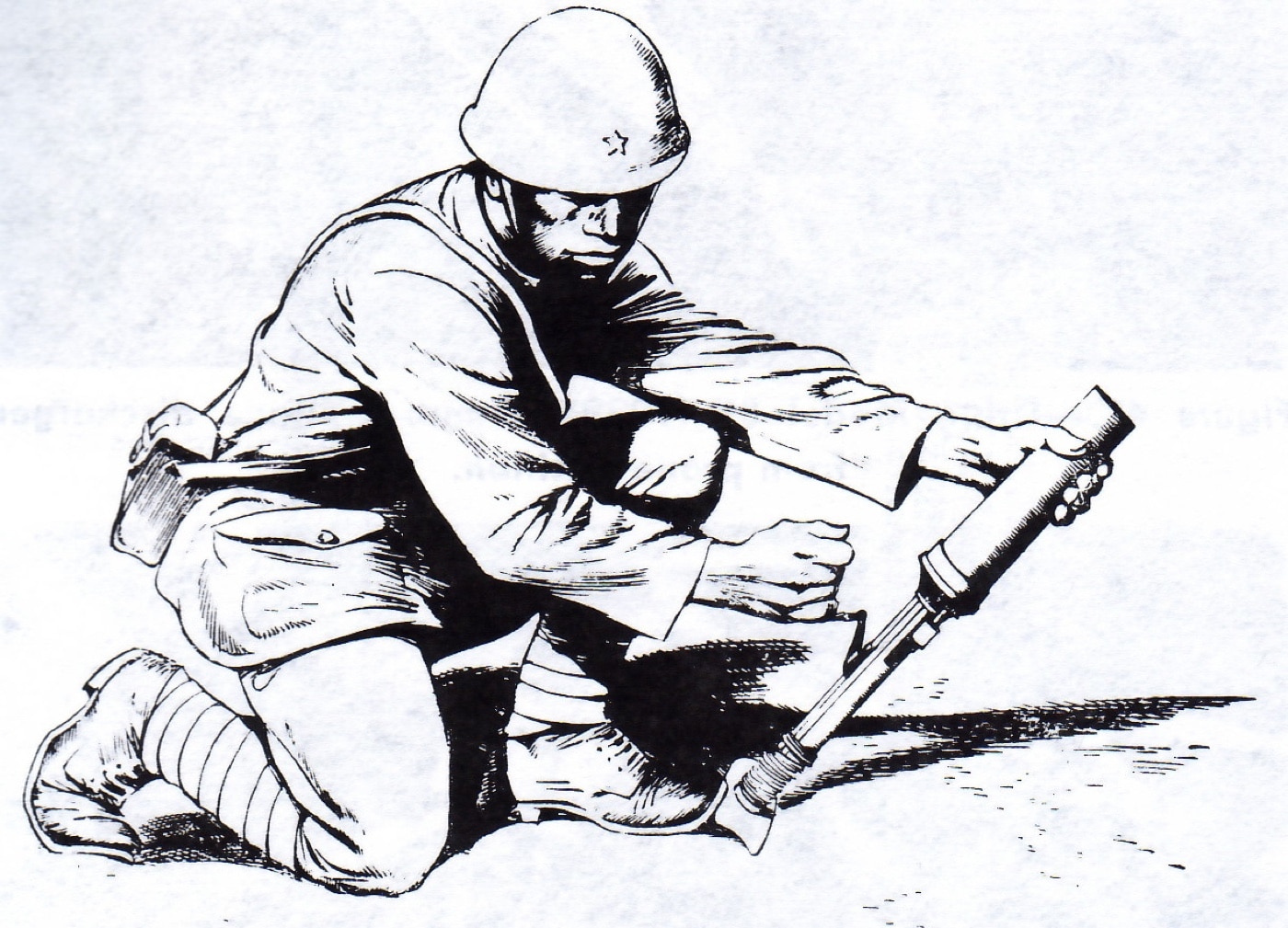
A U.S. Army illustration of the standard firing position for the Model 89 Grenade Discharger — positioned at 45-degree angle with the gunner’s forward foot steadying the weapon’s base plate. Image: NARA
The Model 89 grenade discharger specifically addressed this gap and effectively dominated that space with a 1-lb., 12-oz.
high explosive (HE) shell that provided a considerable blast effect.
The standard Model 91 fragmentation grenade could also be fired when fitted with a propellant cylinder.
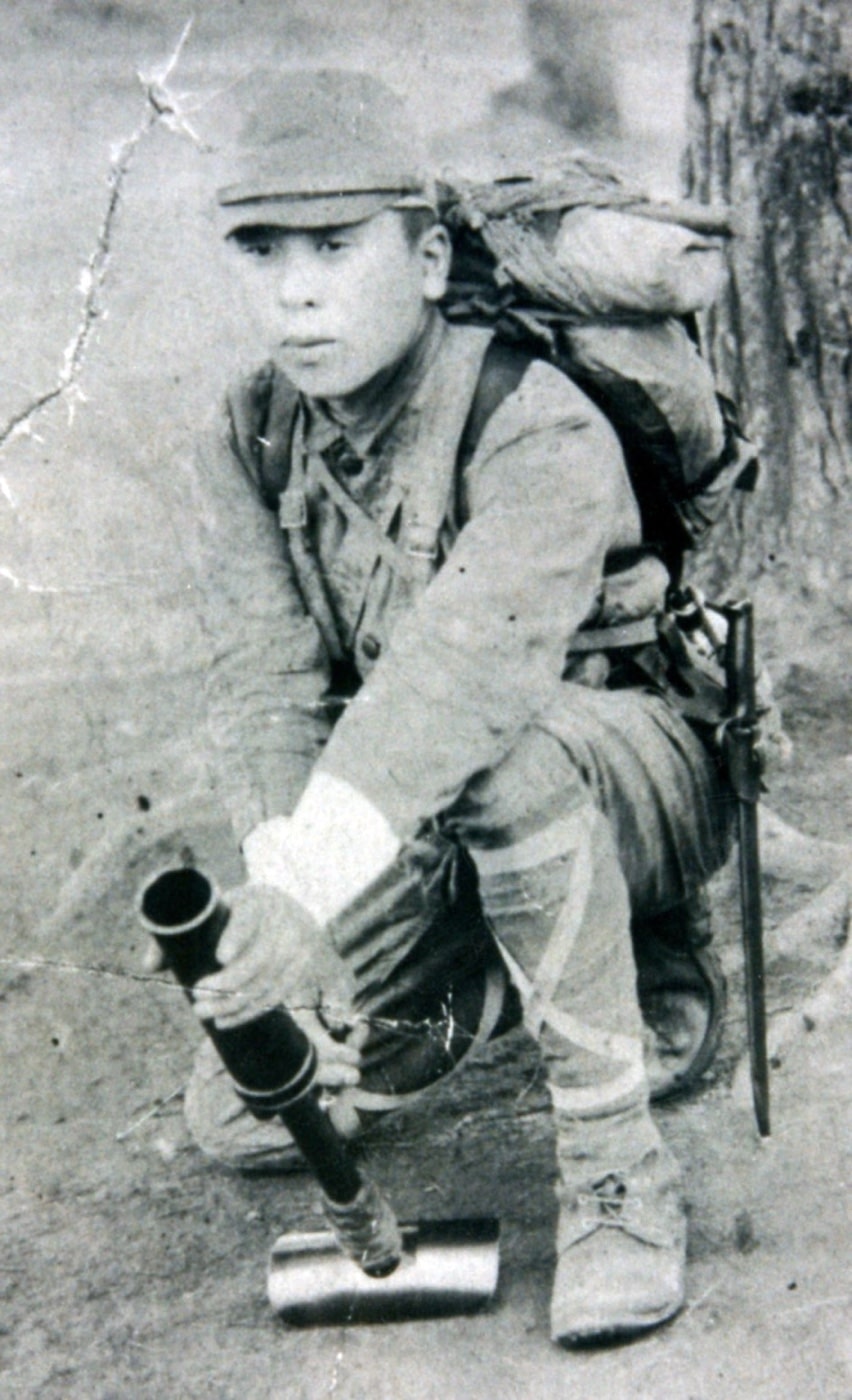
The standard firing position of the Japanese Model 89 Grenade Discharger used in World War II. Image: Author’s collection
Accurate range for the spin-stabilized Model 89 HE shell was from 130 to about 700 yards.
In this mode, if the path to the target was flush the Model 89 shell was particularly effective.
However, if the target was obscured by foliage, the Model 89s impact fuse would detonate prematurely.
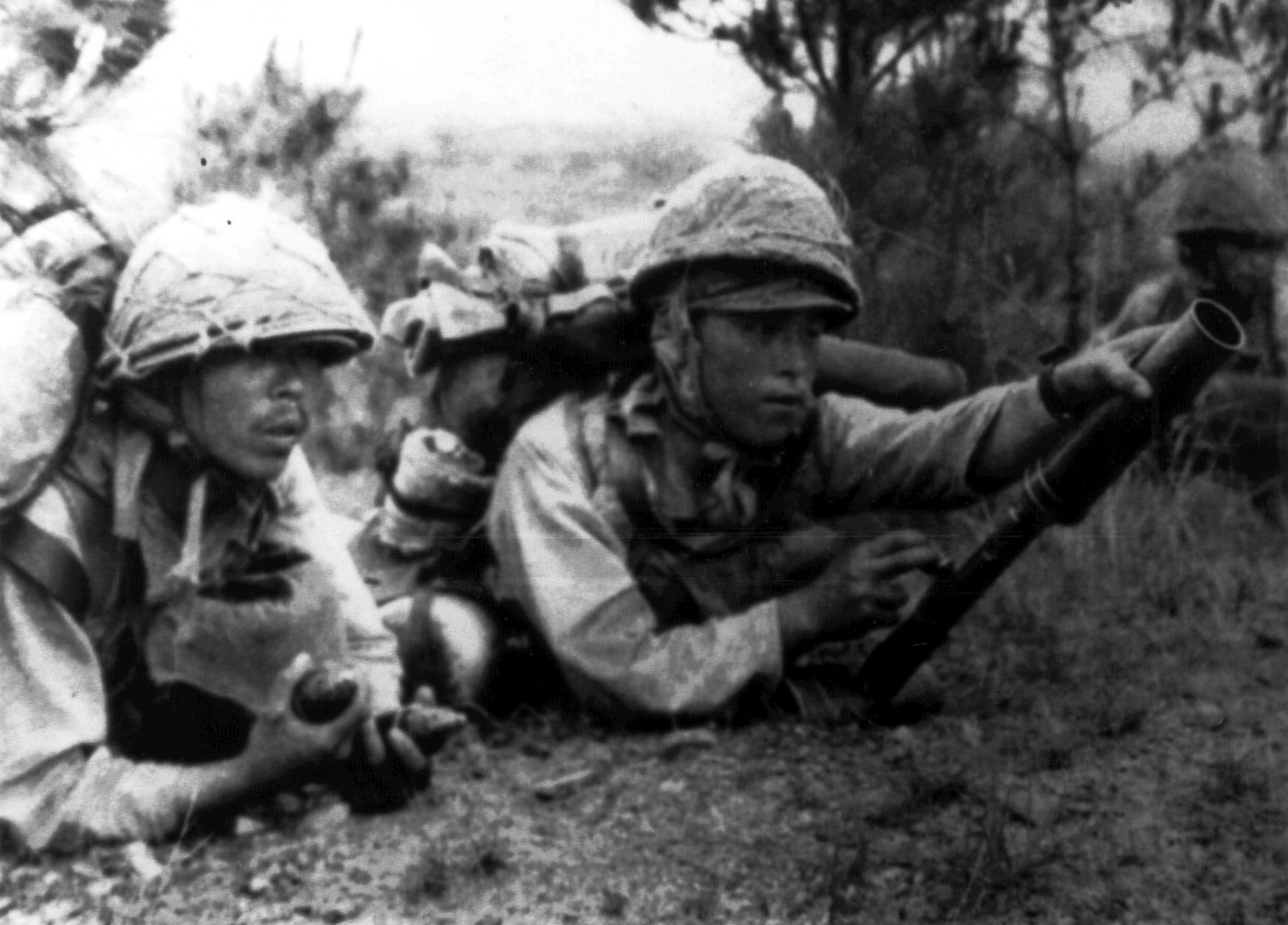
A Japanese soldier fires the Model 89 Grenade Discharger from the prone position in China, in 1942. An ammunition carrier stands by with two high explosive shells. Image: Courtesy of Edwin Libby
The Model 91 used a seven-second time fuse, and would not be affected by such obstructions.
In fact, several U.S. commanders sought to create an American-equivalent.
It was annoying as hell.
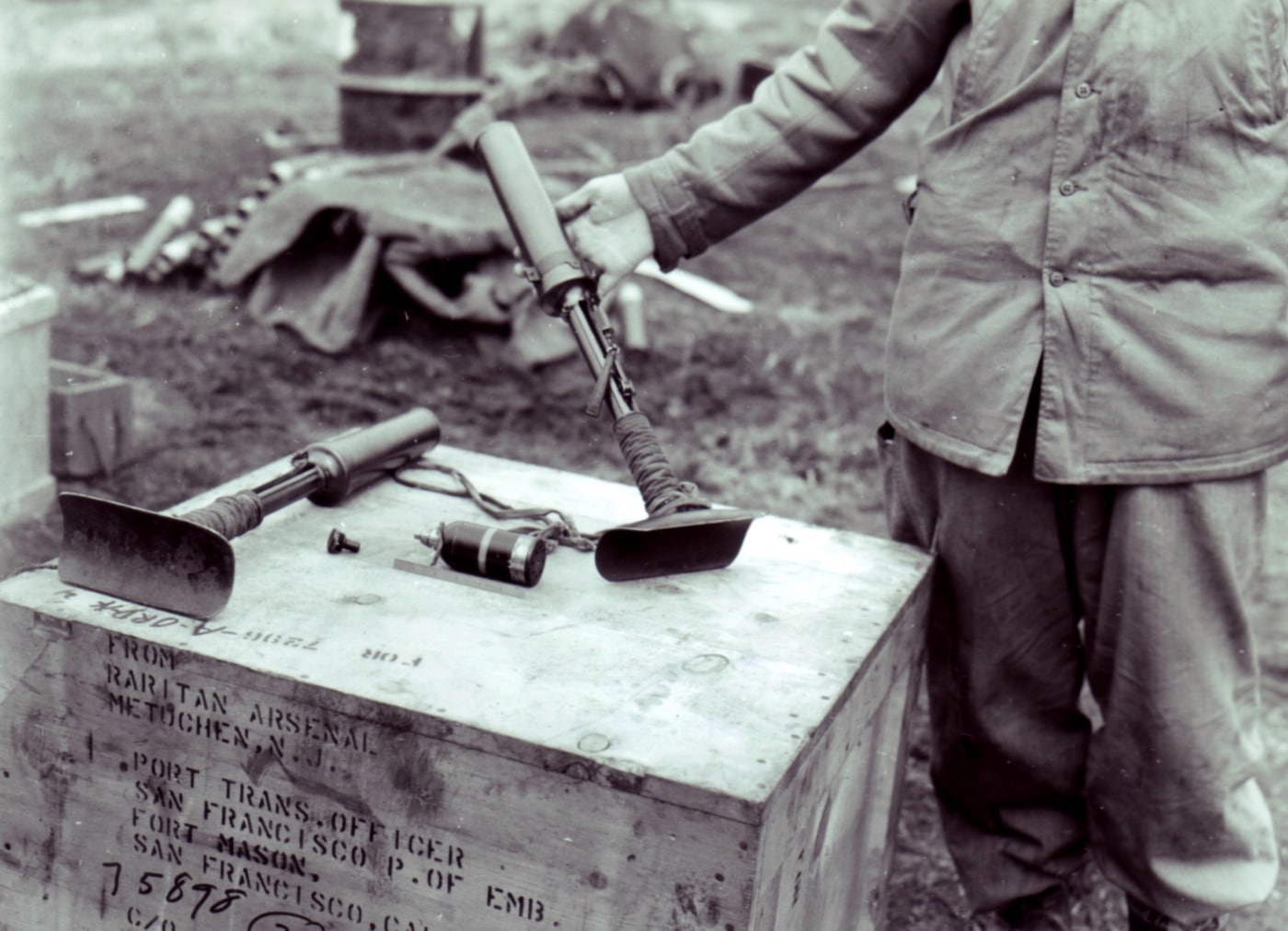
Ready to be sent in for examination, a pair of Model 89 Grenade Dischargers captured on Attu during the Aleutian Islands Campaign against Japanese forces in Alaska, 1943. Image: NARA
We tried to counter it, of course, using materials at hand.
We had to do something to enable our platoons to fire back at the knee-mortars.
The following are reasons in itsfavor:
I would recommend one change in the projectile.
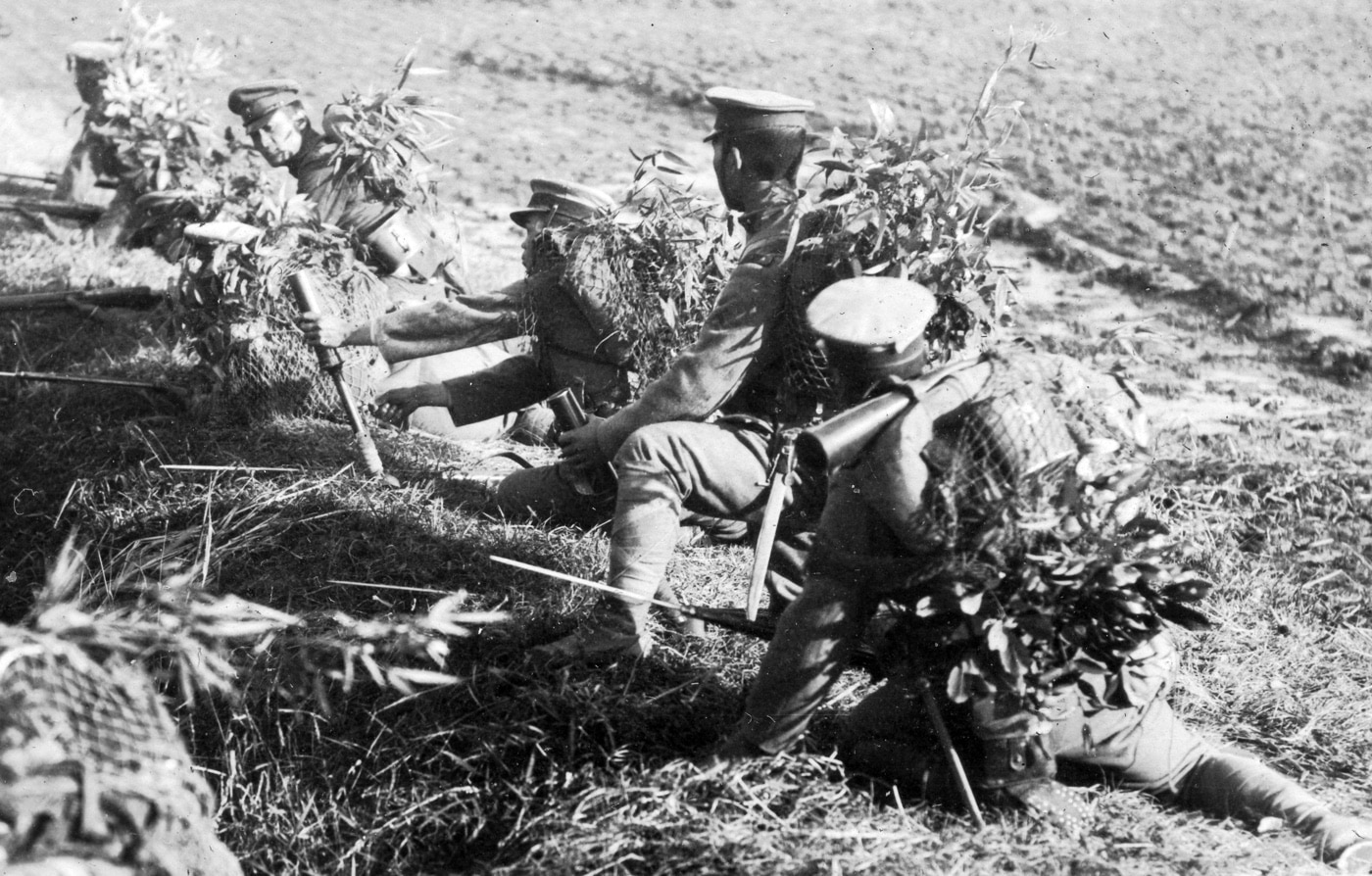
A Japanese mortar squad at work in China with the Model 89 Grenade Dischargers. Image: Author’s collection
The Japs have too much high explosive in the projectile and the case is too thin.
We get a lot of casualties from it, but they are minor wounds.
Instead, U.S. Army Ordnance was soon to provide theM1 2.36 Rocket Launcher, the Bazooka.
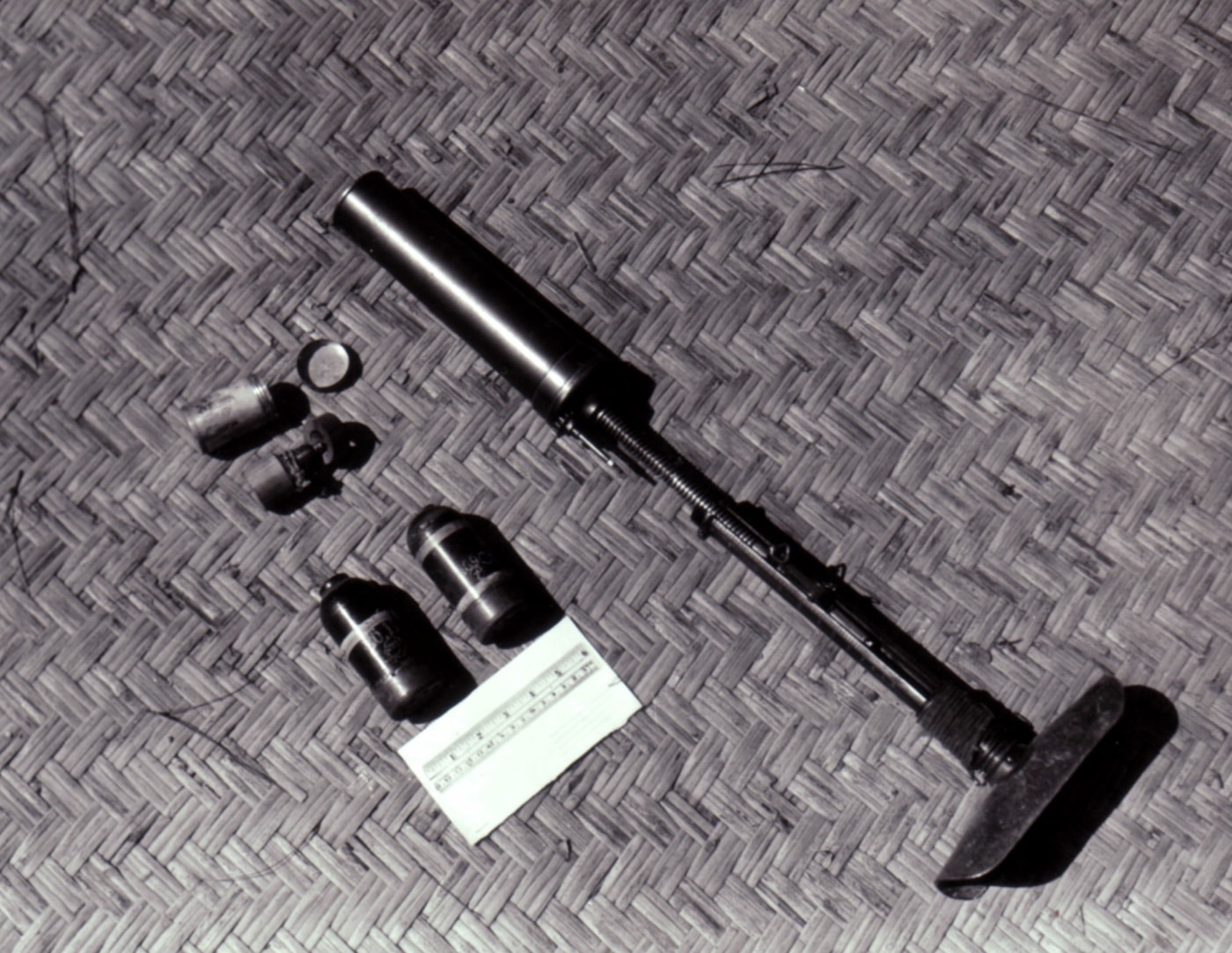
A Model 89 and its high explosive shell that were captured by Allied forces in China during July 1944. Image: NARA
In 1944, the greatly improved M2 Flamethrower became available.
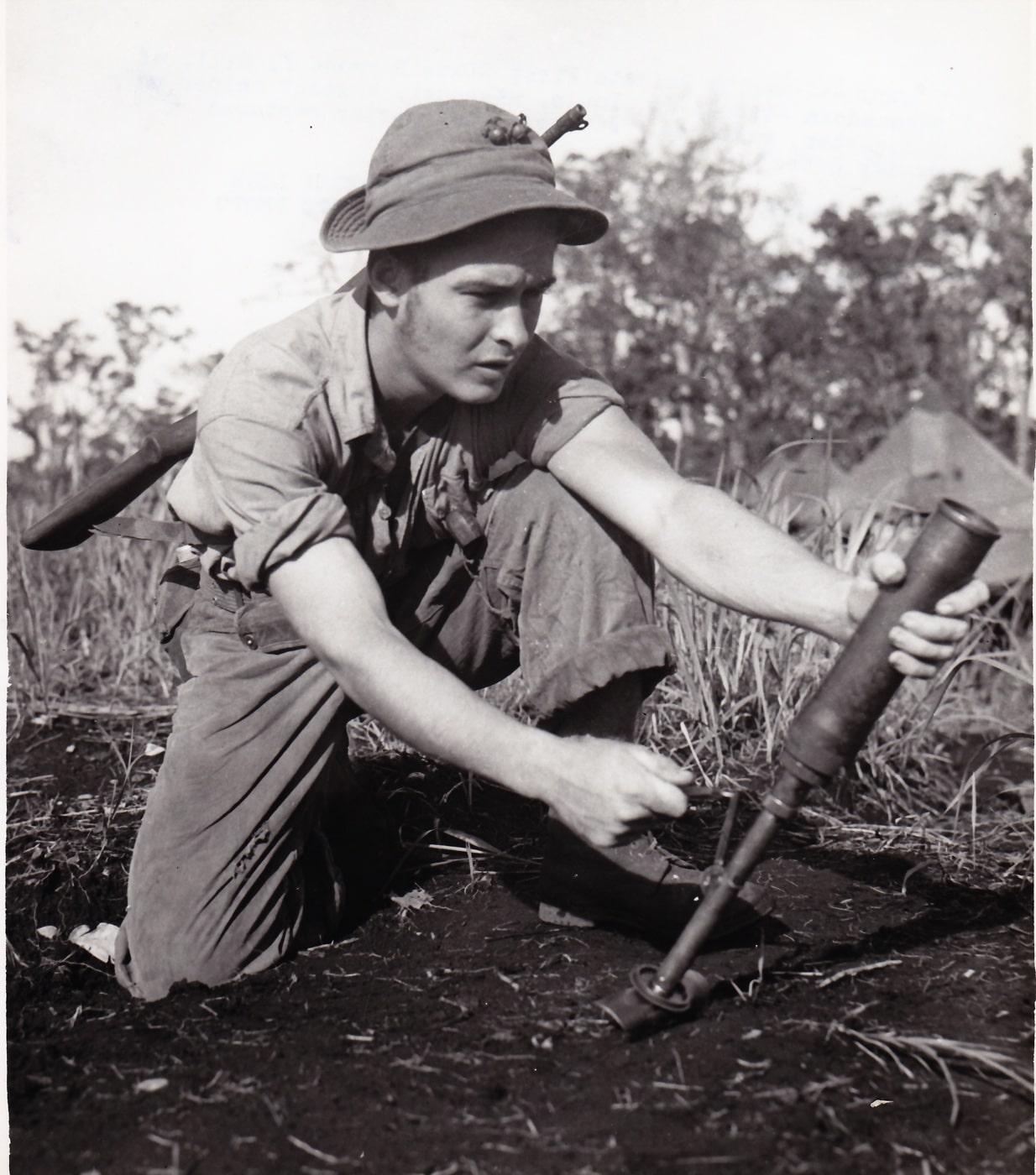
The earlier Model 10 Grenade Discharger was still in use throughout the war. This example is seen after capture onCape Gloucesterin early 1944. Image: NARA
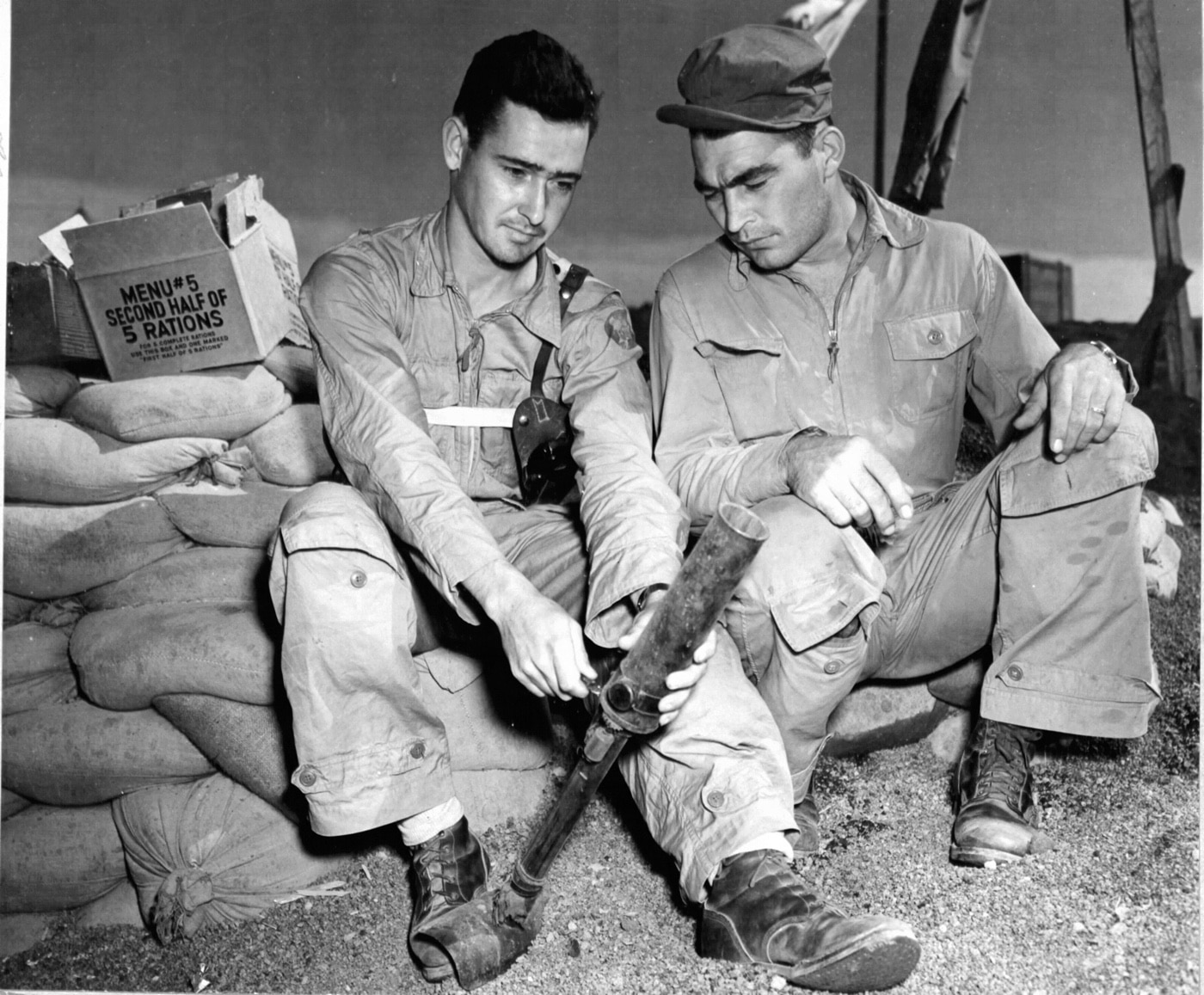
The “Knee Mortar” was a popular souvenir, like this example with USAAF troops onIwo Jimain the summer of 1945. Image: NARA
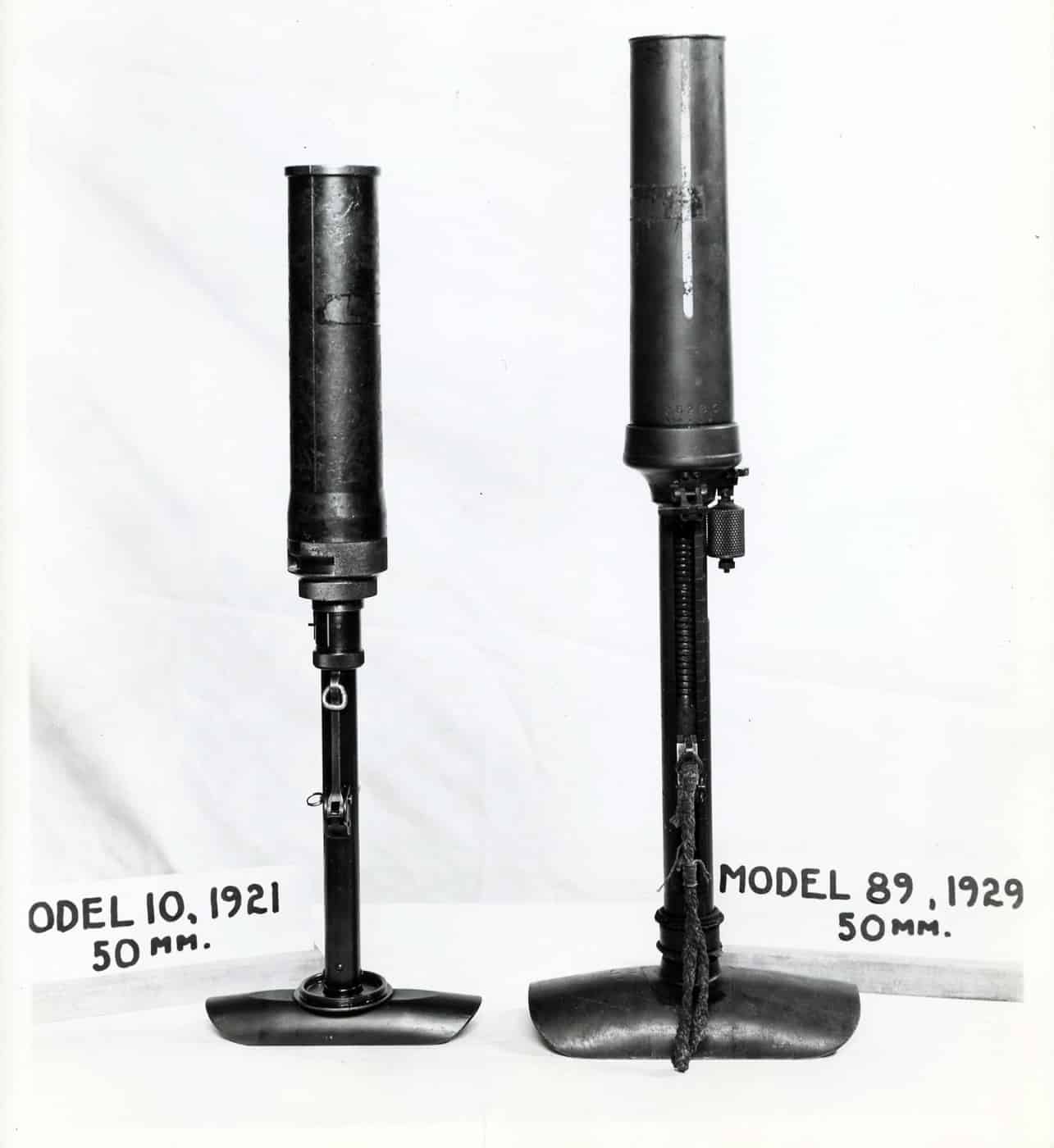
The original Model 10 grenade discharger compared with its more advanced counterpart, the Model 89. Image: Author’s collection
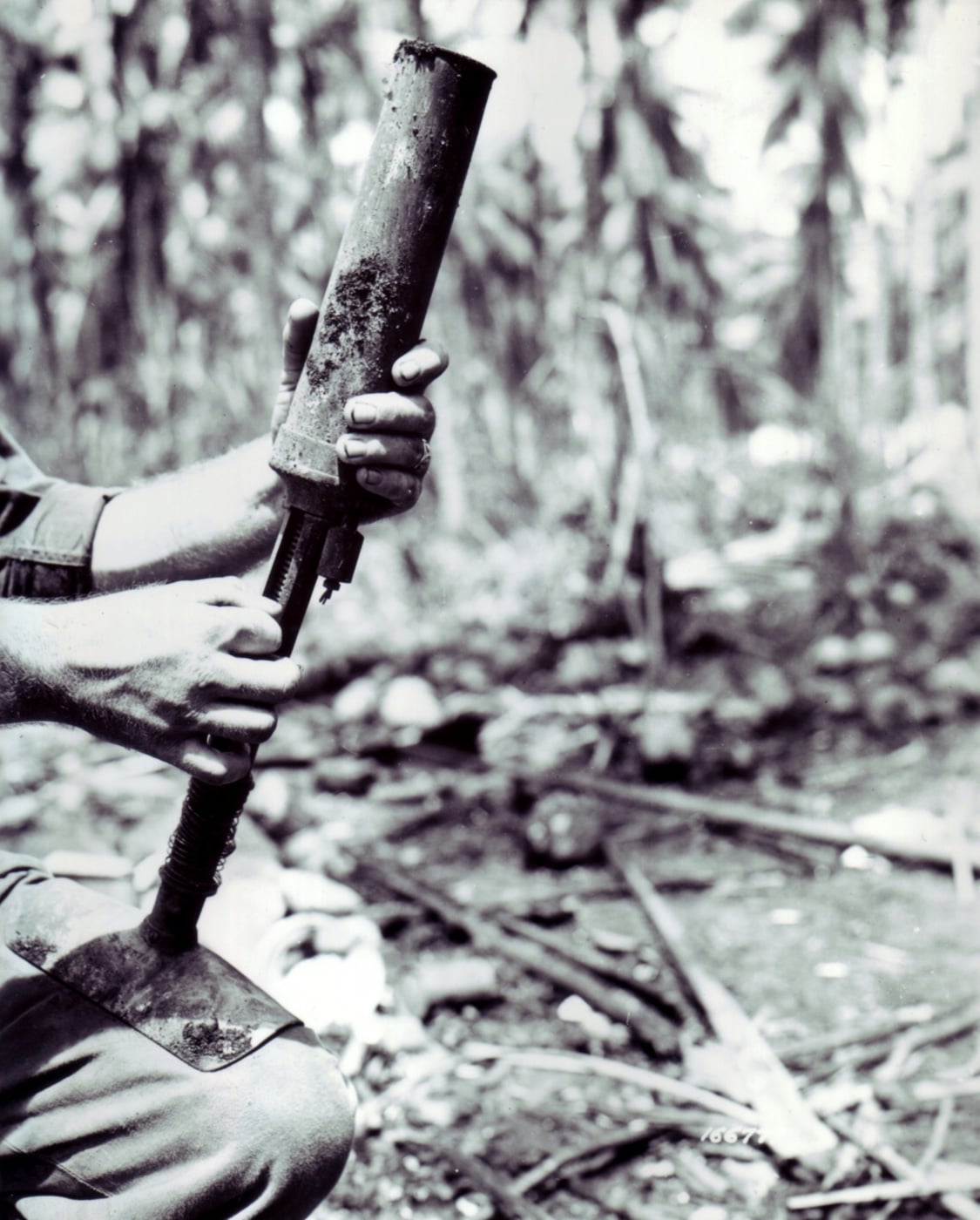
A terrible mistake waiting to happen. The “Knee Mortar” had vicious recoil, strong enough to snap the bones in a leg. Image: NARA
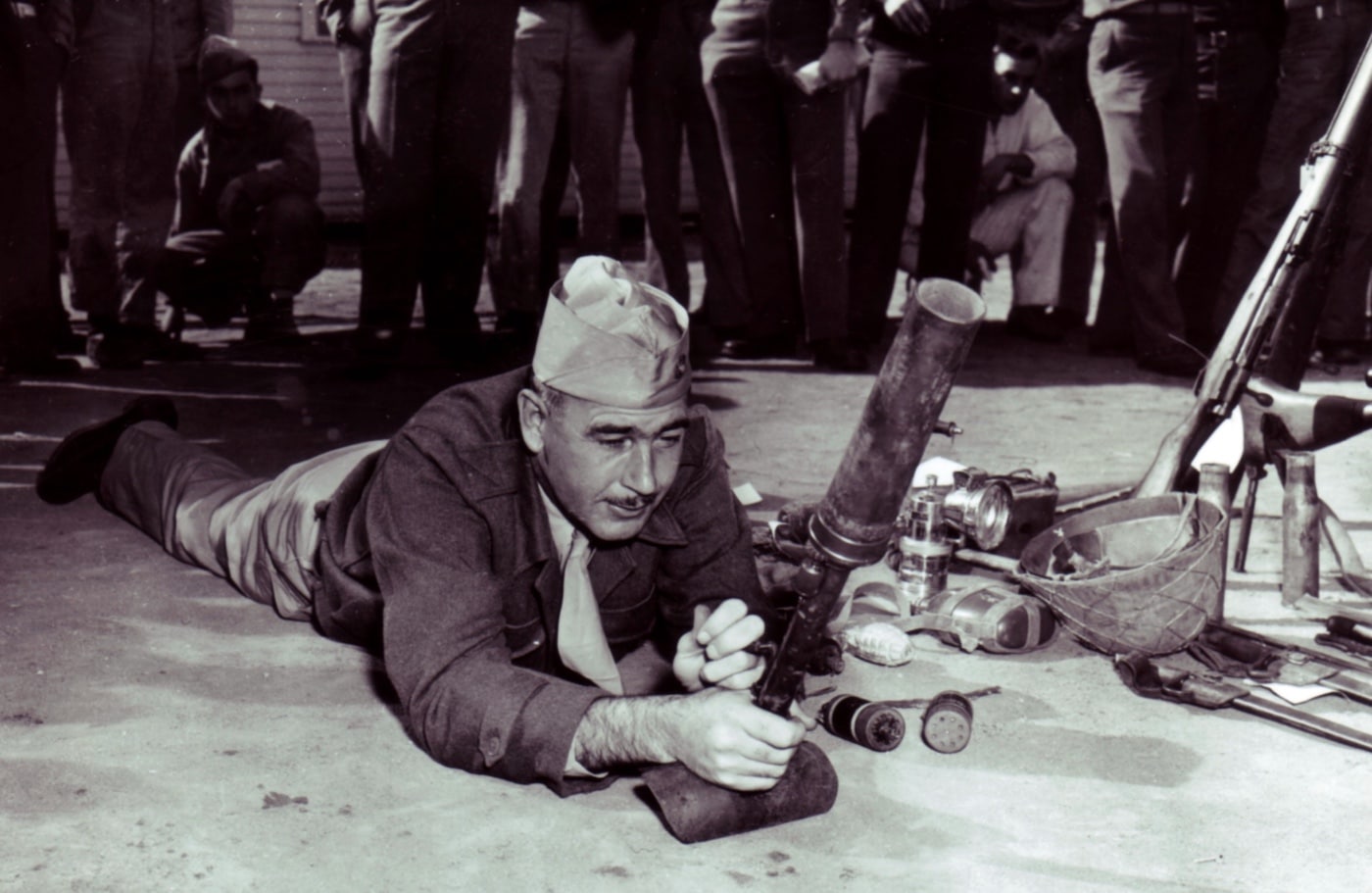
A USMC enemy weapons familiarization class at Camp Elliot during 1943. The Model 89 could be fired in the “direct fire” mode over short ranges. Image: NARA
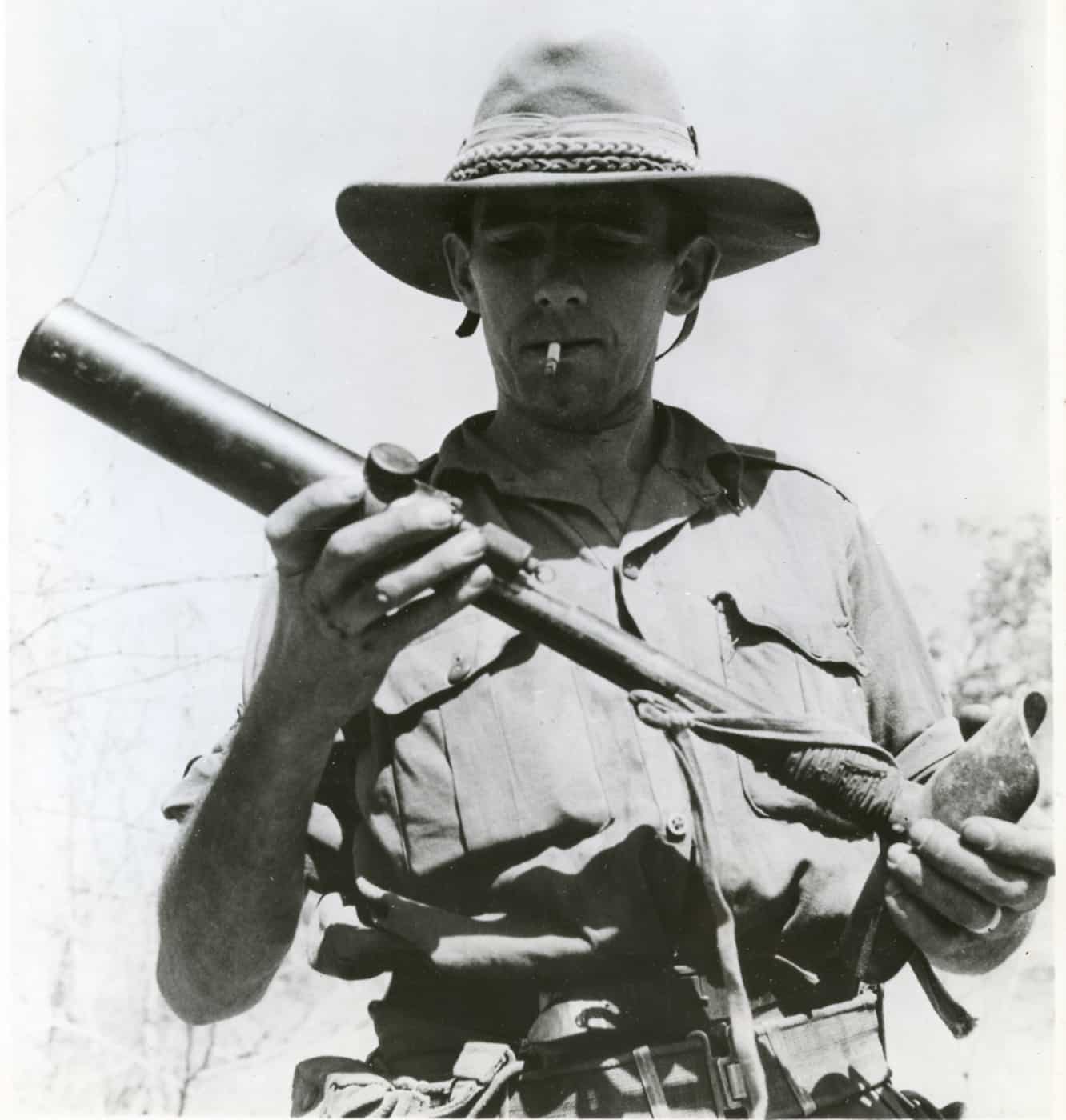
A Model 89 Grenade Discharger captured in Burma during early 1945. Image: NARA
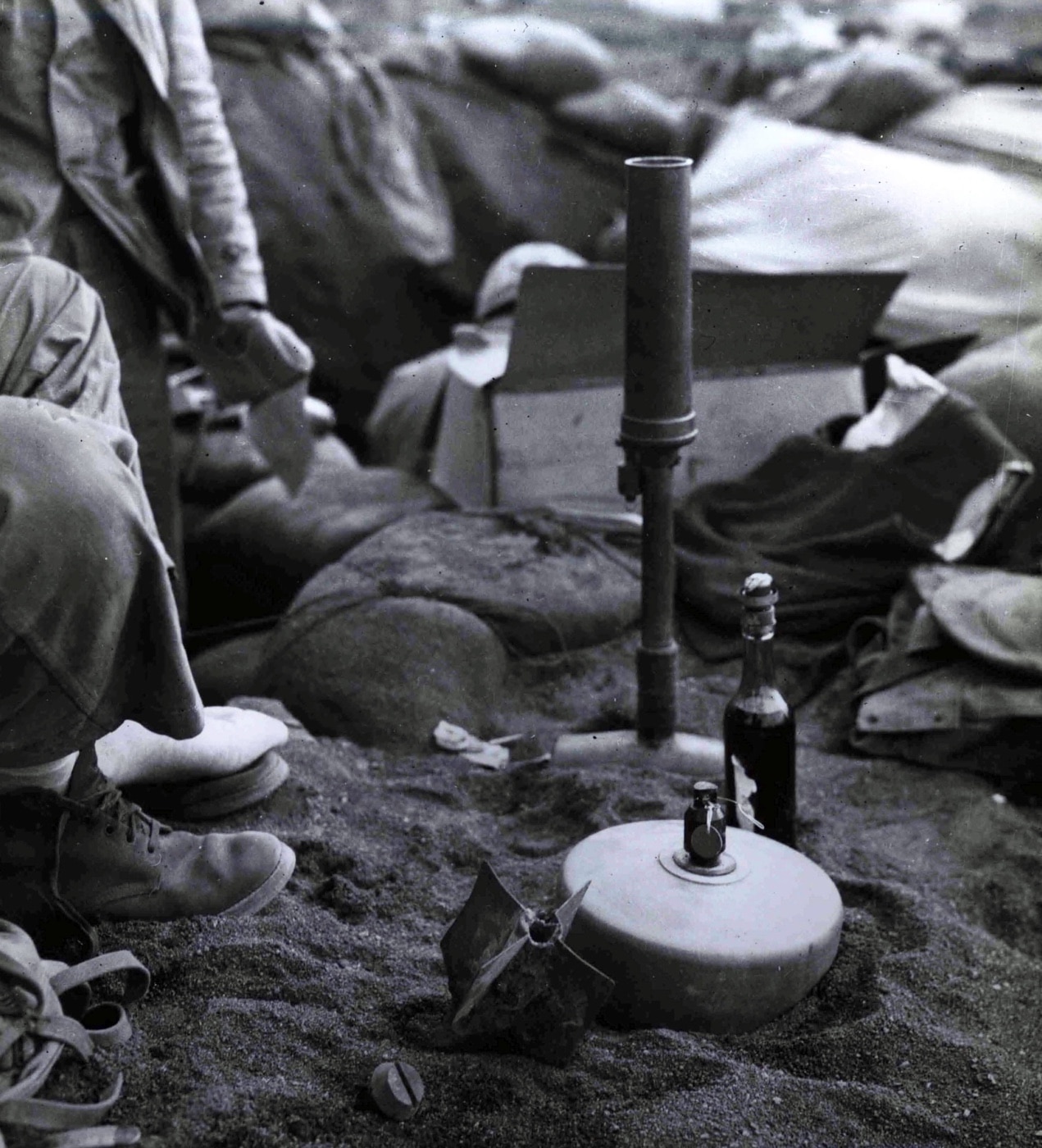
U.S. Marines with a Model 89 knee mortar and other items captured on Iwo Jima. Image: NARA
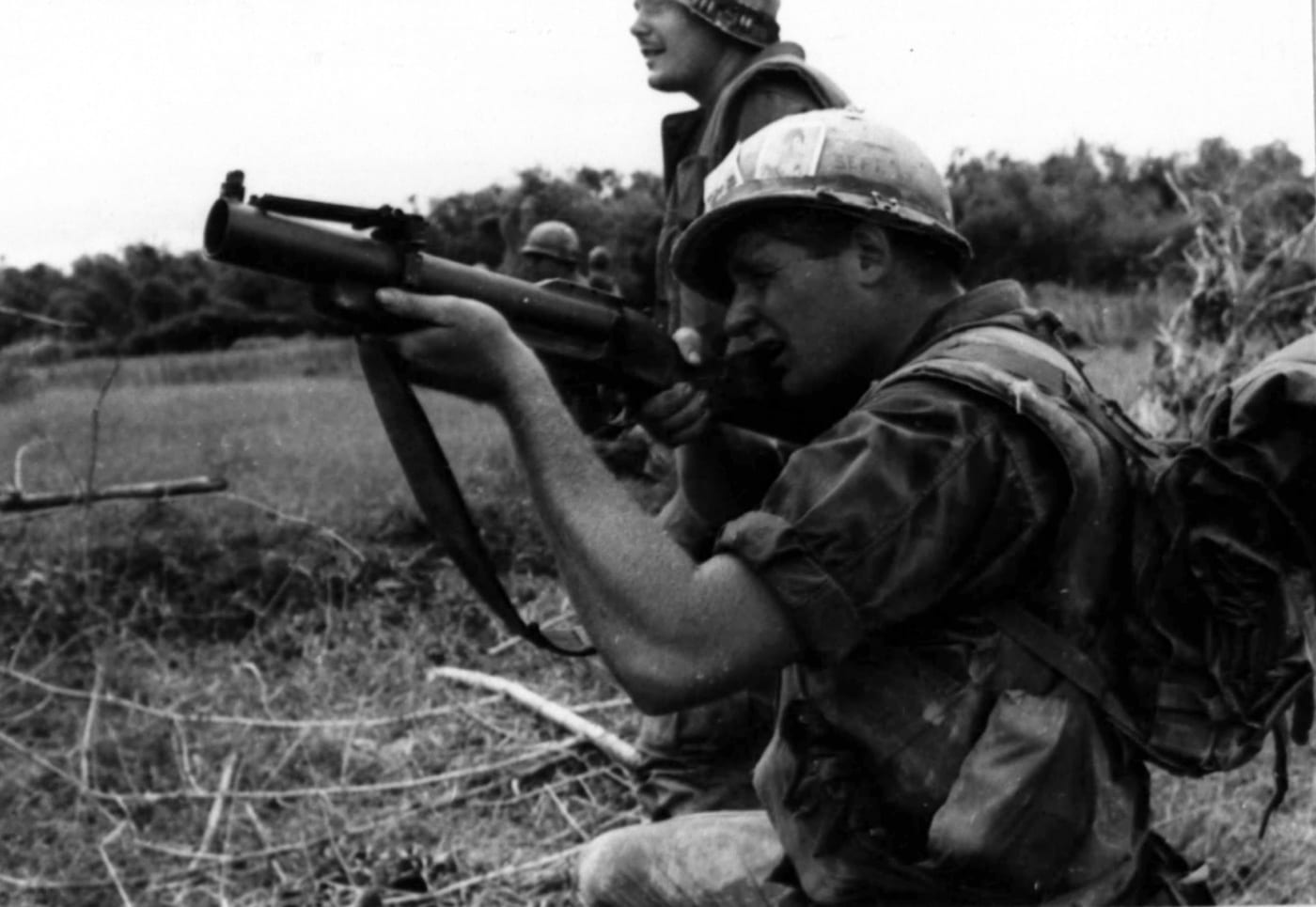
Influenced by the knee mortar of World War II, the US M79 Grenade Launcher proved extremely useful to U.S. troops in Vietnam and beyond. Image: NARA




